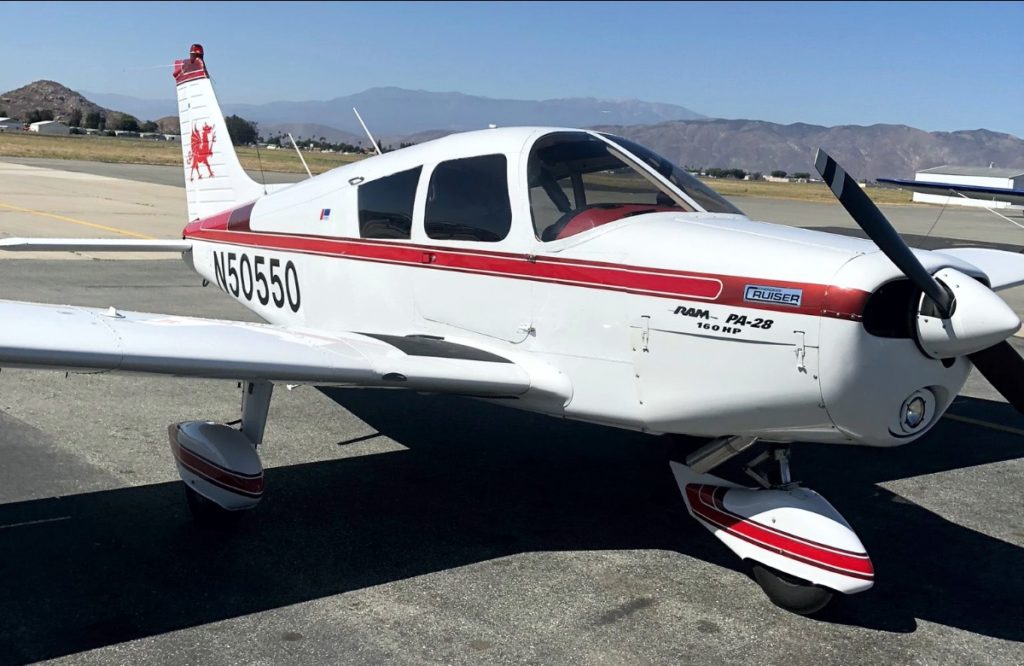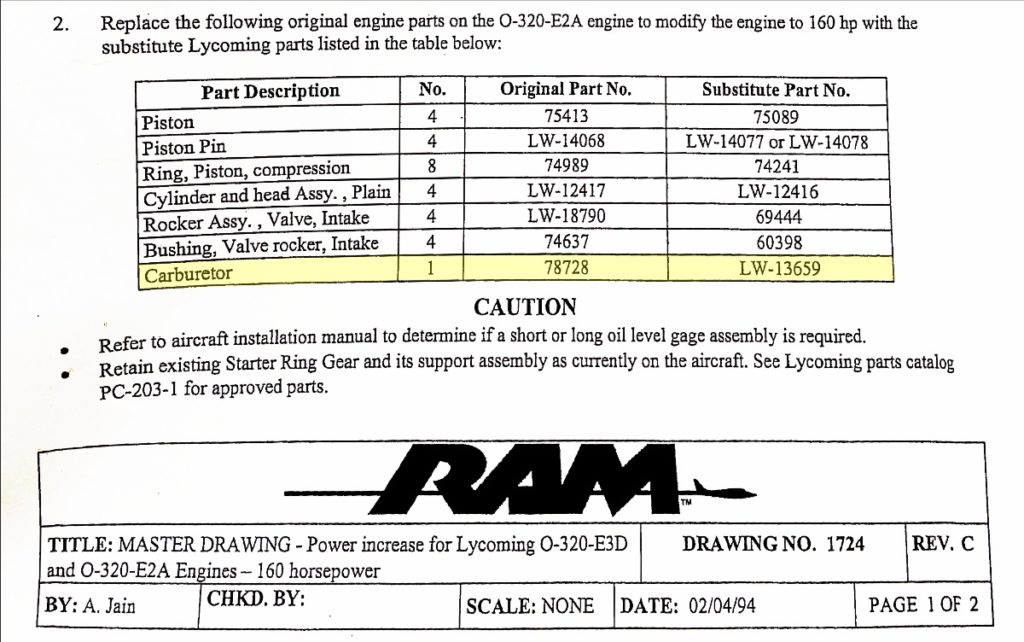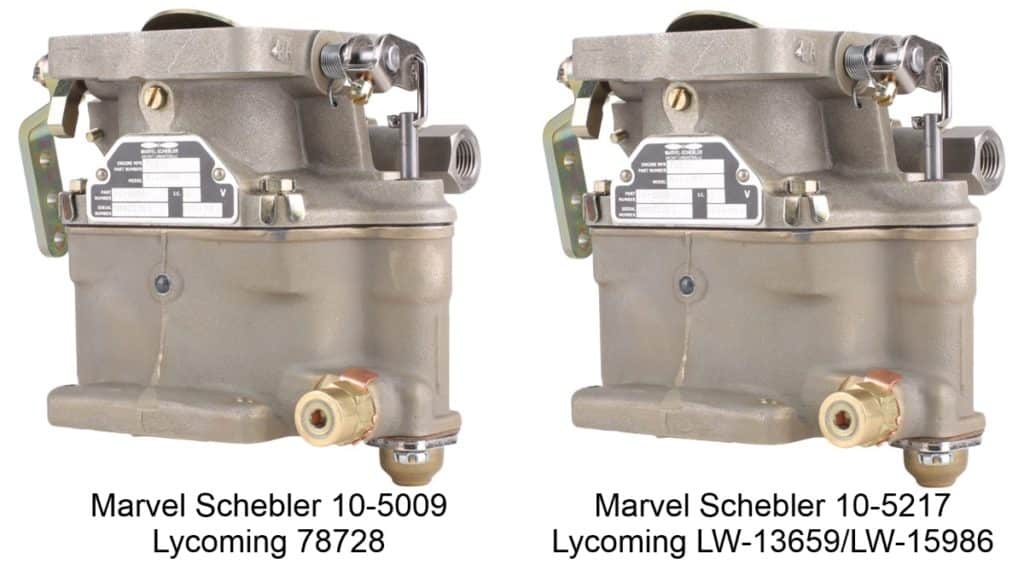
“Took my Piper Cherokee 140 to Awesome Aircraft Engines to diagnose and repair a problem with my brakes. Excellent service along with a very detailed work order made for great customer service. Shop owner Archie stands by his work and I will be back for future maintenance and upgrades to my aircraft.”
So read the Yelp rating that Larry posted about two years ago when he first took his 1972 Cherokee 140 Cruiser to Awesome. [NOTE: The names have been changed to avoid libel.] But this time, Larry’s experience was definitely not satisfactory..
“I had a new carburetor installed not long ago on my PA-28-140,” Larry posted to his SavvyQA ticket. The ticket was assigned to Savvy’s account manager Brandon Thompson A&P/IA.
“My plane left the Piper factory with a 150 hp Lycoming O-320 engine, but was subsequently upgraded to 160 hp via a RAM Aircraft STC,” Larry explained. “The STC includes a table of engine part substitutions required to convert the engine from 150 hp to 160 hp.” Larry posted a photo of the relevant table to his ticket for Brandon to see.

The Tale of Two Carbs
The RAM 160 hp STC calls for replacing the original carburetor (Lycoming part number 78728) with a different one (Lycoming part number LW-13659),” Larry said. “The shop that did the work installed an overhauled 78728 carburetor on my engine. I think they didn’t reference the STC paperwork and ordered what originally came on the plane. The shop says the airplane is airworthy, but I don’t think it is because it’s no longer in compliance with the RAM STC.”
“That sure sounds like a problem,” Brandon agreed. “If it was simply a matter of the shop un-doing the RAM STC and putting the airplane back into its original configuration, then the airplane might be airworthy. But the RAM STC involved a lot more than just replacing the carburetor. It involved installing different cylinders, pistons, piston pins, piston rings, and intake rockers. So un-doing the STC would involve a bunch of costly engine work. Plus I presume that it was not your intention to convert your 160 hp engine to 150 hp, right?”
“That’s for sure,” replied Larry.

The difference between the two is the sizing of the main jets. In fact, a good fuel metering specialty shop could convert one of these carb models into the other model. Brandon explained all this to Larry. “I’m afraid it’s going to be a bit of a mess to sort out,” he said.
Not Exactly Awesome
“Thanks Brandon, that’s what I figured. The shop is denying that it is the incorrect part so I’ve got a challenge on my hands. Unfortunately, the shop isn’t at my home airport, so even if they agreed to right their wrong, my airplane could be stuck there for quite some time. I doubt the FSDO would agree to issue a ferry permit with the engine in its present configuration.”
“You’re right,” said Brandon. “At the end of the day, the STC is law. But it can be tough to convince an unhelpful shop to be helpful. I suggest you lay it all out in plain English to the shop owner and then ask if you should reach out to the FSDO for guidance. That’s a subtle threat, of course, and might get the shop owner’s attention.”
About two weeks passed without any further communication from Larry.
“What’s up, Larry?” Brandon posted. “What did you decide to do about your carburetor issue?”
“Well, I decided to have the correct carb put on by another shop at my expense so I could fly the plane home. I spoke with the owner of the shop that put the wrong carb on, and he said he could have taken it off, sent it out for modification, and then reinstalled it with a new data plate. But he said that this would all have been done at my cost. When I complained that they’d put my airplane in an unairworthy condition, we got into a big debate about what ‘airworthy’ actually meant. Clearly the conversation was going nowhere useful.”
“The second shop that installed the new carb found that the throttle linkage had been installed incorrectly by the first shop, and was missing a bushing,” Larry reported. “I feel fortunate that they caught that.”
“When I demanded that the first shop compensate me for their improper work and the cost I incurred in getting it corrected, the shop owner said ‘no’ but offered to give me a discount on my next annual inspection,” Larry continued. “Obviously, I have no intention of taking my airplane there ever again. Since I paid the shop with a credit card, I plan to file a dispute with the credit card company and hope to get some relief that way. I haven’t yet contacted the FSDO but I plan on doing so.”
“Sounds like a nightmare,” said Brandon. “You are wise NOT to return to that shop. If the credit card dispute doesn’t work, you could try small claims court. A phone call to the FSDO may be warranted, too.”
What shop is this, anyway?
“Would you mind letting me know what shop this is, so I can make sure it’s marked with a big flag in Savvy’s service center database?” Brandon asked Larry. In all the ticket dialogue, Larry had not mentioned the shop’s name.
“The shop that installed the wrong carb and wouldn’t fess up to their mistake was Awesome Aircraft Engines, Inc.,” Larry posted. [NOTE: Not the shop’s real name.]
“Oh lord,” exclaimed Brandon. “I know that guy. Archie is a crook! The shop used to be called Amazing Aircraft Engines, but it went belly up. After the bankruptcy, Archie bought all the equipment and inventory back at auction and started Awesome at another nearby airport. It wasn’t even in our database, but it sure is now!”
“I’m sure sorry you got caught up in this mess,” Brandon posted. “Anything else I can help you with, or is it okay to close this ticket for now?”
“Okay to close,” posted Larry. “Thanks for the help.”
Larry is clearly a really sharp aircraft owner. Sharp enough to realize that Awesome Aircraft Engines replaced his airplane’s carburetor with the wrong part number, something that might well have slipped by a less diligent owner. He was also smart to get a second opinion from Brandon before making a fuss with the owner of Awesome and getting the FSDO involved, just to make sure he wasn’t going to wind up with egg on his face.
SavvyQA can be valuable as a source of expert second opinions. Just because a mechanic tells you something doesn’t mean it is true. “Trust but verify.” If you have a funny feeling about something that an A&P says, it’s smart to get a second opinion to determine whether your funny feeling is justified. Obviously, Larry’s was.
And if Larry had asked us about Awesome before he let them change his carb, we would have steered him elsewhere and his costly and aggravating misadventure could have been avoided.
When Larry asked Awesome to replace his carburetor, Awesome had the obligation to research Larry’s maintenance records to determine exactly what carburetor to install. Had they done so, they would have found the FAA Form 337 covering the conversion of Larry’s O-320 from 150 hp to 160 hp per the RAM STC, and should have seen that the STC called for a different carburetor than the original. Heck, it would be hard to miss this, since the words “RAM PA-28 160 HP” are prominently displayed on the Cherokee’s top cowling! In addition to the Form 337 and the cowling decal, the aircraft’s POH had a Supplement with revised performance charts reflecting the horsepower increase. How a shop named Awesome Aircraft Engines could have missed all this is a bit mind boggling.
Yet this really isn’t so unusual. It’s absolutely breathtaking how much incompetence we at Savvy see in the world of piston GA maintenance. In addition to wrong carburetors, we’ve seen wrong pistons installed, wrong cylinder assemblies, wrong props, and plenty of other wrong stuff installed by shops that should have known better. This is part of why we’re so passionate about providing our aircraft-owner clients with expertise and advocacy.
An annual subscription to SavvyQA for a single-engine piston airplane like Larry’s Cherokee costs $375 per year, and includes unlimited consulting with Savvy’s team of veteran expert A&P/IA account managers. It also includes our SavvyAnalysis service for engine monitor data analysis, and our 24/7/365 breakdown assistance service (“AAA for GA”). We think it’s one of the best bargains in General Aviation. If you’re not already a SavvyQA subscriber, you might want to give it serious consideration.
You bought a plane to fly it, not stress over maintenance.
At Savvy Aviation, we believe you shouldn’t have to navigate the complexities of aircraft maintenance alone. And you definitely shouldn’t be surprised when your shop’s invoice arrives.
Savvy Aviation isn’t a maintenance shop – we empower you with the knowledge and expert consultation you need to be in control of your own maintenance events – so your shop takes directives (not gives them). Whatever your maintenance needs, Savvy has a perfect plan for you: